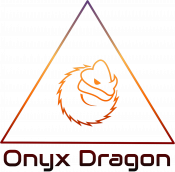For decades, Warhammer 40,000 has captivated fans with its grimdark setting, sprawling lore, and relentless warfare. But where did the inspiration for this dystopian sci-fi universe come from? The origins of WH40K lie in a melting pot of classic science fiction, fantasy, history, and even heavy metal music. Let’s dive into the key influences that shaped the galaxy-spanning nightmare that is the Warhammer 40K universe.
1. Classic Science Fiction
WH40K draws heavily from classic sci-fi literature and films, borrowing themes of dystopia, empire, and militarism. Some of its most prominent influences include:
- Dune by Frank Herbert – The concept of an all-powerful Emperor, religious fanaticism, and political intrigue echo throughout the Imperium of Man.
- Starship Troopers by Robert A. Heinlein – The use of power armor, totalitarian governments, and endless war is reflected in the Adeptus Astartes and the Imperium’s military doctrine.
- Foundation by Isaac Asimov – The decline of a vast, interstellar empire and its bureaucracy mirrors the Imperium’s decayed state.
- Judge Dredd comics – The Imperium’s authoritarian rule and hive cities bear strong similarities to Mega-City One and its dystopian law enforcement.
- Alien (1979) – The Tyranids share eerie similarities with the xenomorphs, while the corporate greed of the Adeptus Mechanicus and rogue traders echoes the Weyland-Yutani Corporation.
2. Fantasy & Mythology
WH40K is deeply rooted in fantasy, drawing from myths and Games Workshop’s own Warhammer Fantasy Battle:
- The Imperium of Man is structured like a medieval feudal empire, with a God-Emperor at the top and various knightly orders.
- Chaos Gods and their followers are inspired by demonic lore and fantasy archetypes.
- The Eldar, a spacefaring elven race, retain their mythological and high-fantasy roots, akin to Tolkien’s elves.
- The Orks’ brutal, war-hungry culture is reminiscent of both classic fantasy orcs and football hooligans, with a humorous twist.
3. Real-World History & Politics
Much of WH40K’s grim atmosphere and political structure come from real-world historical parallels:
- The Roman Empire – The Imperium of Man mirrors Rome’s vast bureaucracy, military structure, and ultimate decline.
- Nazi Germany & the USSR – Themes of propaganda, authoritarian rule, and secret police (Inquisition) are heavily present in the Imperium.
- The Cold War & World Wars – The constant state of war and arms races in WH40K reflect real-world global conflicts and tensions.
4. Heavy Metal & Punk Culture
Beyond books and history, the aesthetic and attitude of WH40K owe a lot to music and counterculture:
- Bands like Iron Maiden, Motörhead, and Black Sabbath inspired the grim, battle-hardened visuals and themes.
- Punk and Heavy Metal culture brought an anti-authoritarian, over-the-top brutality to the setting, reflected in the war-torn galaxy and rebellious factions like the Orks.
Conclusion: A Perfect Storm of Inspiration
Warhammer 40,000 is not just a product of imagination; it’s a fusion of literature, history, pop culture, and music, woven into a universe where there is only war. Whether you’re drawn to the gothic horror of the Imperium, the eldritch terror of Chaos, or the anarchic brutality of the Orks, one thing is clear: WH40K is a unique beast that stands the test of time.
What are your favourite influences behind Warhammer 40K? Let us know in the comments!
#Warhammer40K #WH40K #SciFi #Fantasy #TabletopGaming #WarhammerLore #HeavyMetal #Grimdark #GamingCommunity #40kUniverse #ImperiumOfMan
